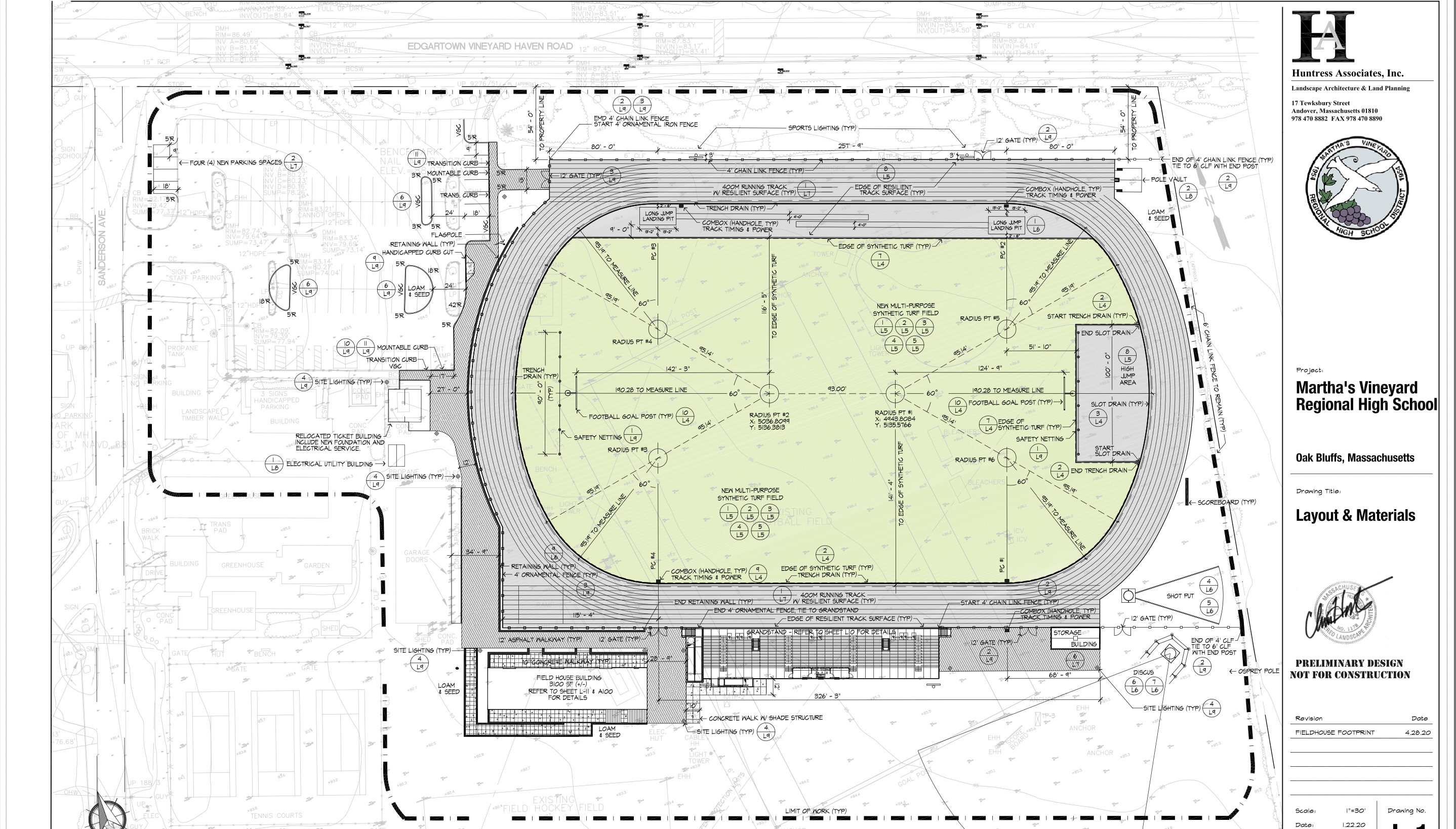MVC Pursues Written Decision On High School Fields
[ad_1]
The Martha’s Vineyard Commission continued its written decision discussion on Thursday at the athletic fields at Martha’s Vineyard Regional High School after making several changes and additions.
Commissioner Ben Robinson suggested noting in the energy section of the written decision that language would be added recognizing that certain elements of the project will introduce embedded carbon emissions.
“It should be noted that the choice of synthetic materials and associated components as well as the field house contain a certain amount of embodied carbon emissions which diminishes the value of the benefits mentioned above,†said Robinson.
Although Robinson recognized the energy benefits of adopting a new LED lighting system and other elements of the project, he stressed that adding new materials to the campus that contain embedded carbon is a detriment. which should be noted.
Commissioner Fred Hancock disagreed with Robinson and said he believes the information in the ruling is a good representation of what was discussed during the MVC’s deliberations.
“I know Ben has other feelings about it,†Hancock said.
Commission President Joan Malkin reminded the group that they are not strictly limited to what was discussed in deliberations, and are only limited to what the public record reflects.
Commissioner Doug Sederholm said there isn’t a project the MVC is looking at that doesn’t involve some form of embedded carbon, and he’s worried the nit-picking could lead the group into a rabbit hole.
Robinson made a motion to add the language, which passed 7-6.
Another change added wording clarifying that with regard to safety and health, the commission believes that the project may have an adverse impact due to potential contaminants related to the synthetic field.
The original wording of the document stated that the project “would†have a negative impact due to contaminants (not potential contaminants).
Commissioner Ted Rosbeck expressed concern that the use of words like “may†and “potential†is an editorial on the issue of the potential impacts of chemicals such as per- and polyfluoroalkyl substances (PFAS). Rosbeck suggested that the project would have a neutral impact on safety and health.
Regional Impact Development Coordinator Alex Elvin said reports from environmental consultants concluded that there were potential contaminants, but that they did not have enough information to draw conclusions about the leaching and impact on the watershed.
Commissioner Jeff Agnoli said the synthetic field contained PFAS and the case saw conflicting testimony as to whether or not this would affect health and safety.
“There have been quite a few reports that there are a very small number of PFAS that are adequately tested. I think the slightly prejudicial is appropriate, â€Agnoli said.
The motion to change the language was carried by 9-4.
The committee continued with the written decision until a next meeting.
[ad_2]

